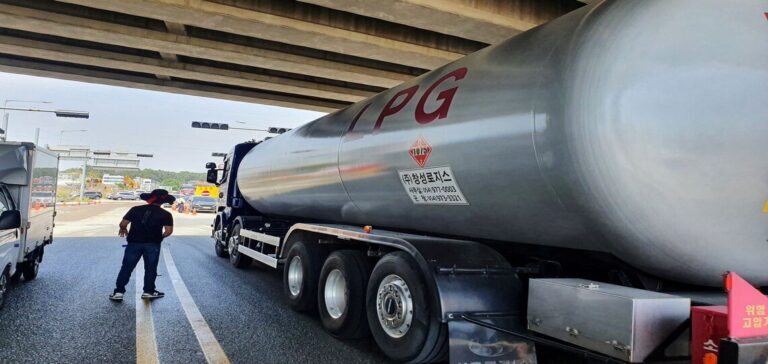In South Korea, truckers are going on their second major strike in less than six months, risking disruption of supplies to the country.
Fuel costs
In South Korea, in order to cope with soaring fuel costs, truckers are asking the government to make a minimum wage system permanent. This will expire at the end of the year. In addition, they are asking to extend benefits to truckers in other industries, including oil tankers.
The government will extend the program for three years but will not incorporate other union demands into its plans. The main organizer of the strike is the Cargo Truckers Solidarity Union (CTSU). He warns that the strike could interrupt oil supplies at major refineries.
It could also put a strain on transportation to major ports and factories. Won Hee-Ryong, the Minister of Transport, says the Safe Freight Rate system had not proven to improve the safety of truckers. It only increased their income.
The union is also calling on the government to monitor large companies. The union is calling for punishments if they do not pay the minimum wage. Transport Minister Won Hee-Ryong says:
“Frontline truckers should not support unwarranted collective action. We will strictly crack down on trucker obstruction of the police to ensure safe transportation.”
The impacted economy
In June, an eight-day truckers’ strike delayed freight shipments for South Korea’s automotive industries. This cost over $1.2 billion in lost production and unfulfilled deliveries. Industry giants like Hyundai Motor or POSCO had to reduce their production because of this strike.
The union plans to hold rallies across South Korea. The port of Ulsan, which houses the Hyundai Motor manufacturing plant, could be a victim.
The union says almost all of the CTSU’s 25,000 members (about 6% of the country’s truckers) will participate in the strike. Non-union members are also expected to join the strike. The Korean Association of Gas Stations asks gas station owners to secure enough inventory before the strike.
The government plans to deploy military trucks for urgent transport and secure more storage space if the shipments pile up. However, Hyundai Steel announced that its daily shipment of 8,000 tons of steel products to Pohang would suffer. The supply of hydrogen to refill stations could also be impacted.






















